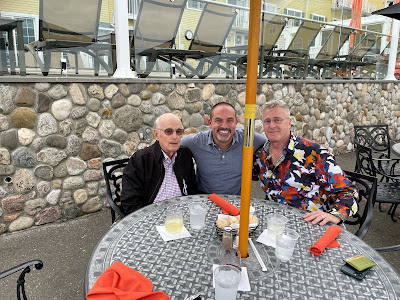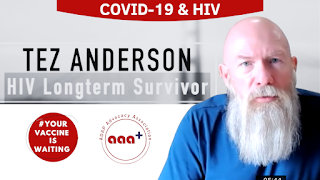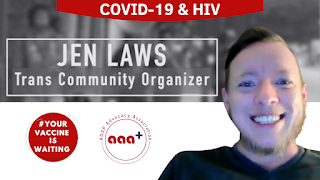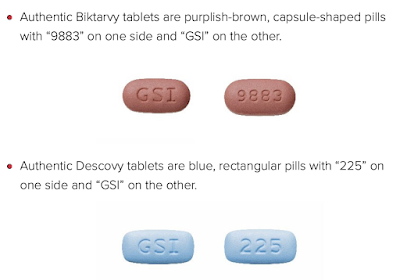By: Brandon M. Macsata, CEO, ADAP Advocacy Association
The ongoing Covid-19 pandemic has revealed a longstanding truth well-known to the public health community, but often ignored by elected so-called 'leaders' and the general public. That is, public health is grossly underfunded in the United States. The federal share of public health expenditures dropped from 45% to 15% over 50 years.[1] Yet, rather than making the needed investments to address societal problems, or untreated cognitive and mental disabilities, or unfavorable social determinants of health, we leverage the vast criminal justice system to 'fix' them. There is probably no better example than the criminalization of HIV/AIDS in this country, dating back to the AIDS hysteria perpetrated by the late, bigoted Senator Jesse Helms. But evidence suggests that the tide is turning on these criminalization laws.
According to the Centers for Disease Control & Prevention (CDC), 37 states have HIV criminalization laws, including HIV-specific exposure laws, general communicable disease exposure laws (which could include HIV), and/or sentence enhancement laws specific to HIV. As of 2020, there were only 11 states with no specific criminalization laws.[2]

Starting in the 1990s, advances in medicine and the advent of the antiretroviral (ARV) therapies revolutionized the fight against HIV/AIDS; now, they are having a positive impact (pun intended) in the fight against HIV criminalization laws. The driving force behind it is Undetectable = Untransmittable, or U=U. In other words, a person living with HIV who is on treatment and has an undetectable viral load cannot transmit HIV through sex. According to the Prevention Access Campaign, "The science is clear. People living with HIV can feel confident that if they have an undetectable viral load and take their medications as prescribed, they cannot pass on HIV to sexual partners."[3]
Since 2014, several states have modernized their HIV criminalization laws - including California, Colorado, Iowa, Michigan, and North Carolina. With respect to these five states, CDC states: "Changes include removing HIV prevention issues from the criminal code and including them under disease control regulations, requiring intent to transmit, actual HIV transmission, or providing defenses for taking measures to prevent transmission such as viral suppression or being noninfectious, condom use, and partner PrEP use."[4]
 |
| Photo Source: Prevention Access Campaign |
U=U has changed the HIV criminalization paradigm, evidenced by three more states turning the tide on these outdated laws. Joining the chorus for change are Illinois, Missouri, and Nevada. The following news reports provide an excellent analysis on the driving force behind the changes in each state:
What is notable about Illinois, it represents only the second state to completely repeal its HIV criminalization law, following Texas' repeal back in 1994. “The repeal of the HIV criminal law in Illinois is a tribute to the work of state activists and organizers that made it happen, and a welcome advancement in the broader work to repeal these discriminatory laws across the nation,” said Jada Hicks, The Center for HIV Law & Policy’s Supervising Attorney for Criminal Justice Initiatives.[5]
 |
| Photo Source: Fine Art America |
The criminal justice system shouldn't be used as a public health tool, because that isn't what it is designed to do. Broadly, some disability advocacy groups seeking to transform the system want to eliminate the criminalization of public health issues.
In fact, Joshua D. Blecher-Cohen makes the case about disability law and criminalization in The Yale Law Journal, "HIV-specific criminal laws violate the Americans with Disabilities Act’s (ADA) ban on discrimination by public entities." We agree. In fact, there is a strong argument that such criminalization laws not only violate the ADA, but also the Rehabilitation Act of 1973, as amended.
HIV criminalization laws don't curb the transmission of sexual transmitted infections, but they do promote HIV-related stigma. HIV criminalization laws don't save money, because they actually put taxpayers on the hook for more costs from unnecessary incarceration. HIV criminalization laws don't protect people, yet they do increase the spread of misinformation. People living with HIV/AIDS deserve equal protection under the law! HIV-negative people deserve a more honest approach to public health! And the United States deserves better!
[1] Haseltine, William A (2020, October 21). Underfunding Public Health Harms Americans Beyond Covid-19. Forbes. Retrieved online at https://www.forbes.com/sites/williamhaseltine/2020/10/21/underfunding-public-health-harms-americans-beyond-covid-19/?sh=76b194a9419c#:~:text=Public%20health%20is%20consistently%20underfunded%20and%20often%20viewed,shorter%20lives%2C%20especially%20among%20those%20in%20lower-income%20brackets.[2] Centers for Disease Control & Prevention (2020, December 21). HIV and STD Criminalization Laws. U.S. Department of Health & Human Services. Retrieved online at https://www.cdc.gov/hiv/policies/law/states/exposure.html.
[3] Prevention Access Campaign (2021, February). Undetectable = Untransmittable. Retrieved online at https://www.preventionaccess.org/undetectable.
[4] Centers for Disease Control & Prevention (2020, December 21). HIV and STD Criminalization Laws. U.S. Department of Health & Human Services. Retrieved online at https://www.cdc.gov/hiv/policies/law/states/exposure.html.
[5] The Center for HIV Law and Policy (2021, July 28). Illinois Becomes Second State to Repeal HIV Criminalization Laws. Retrieved online at https://www.hivlawandpolicy.org/news/illinois-becomes-second-state-repeal-hiv-criminalization-laws. Disclaimer: Guest blogs do not necessarily reflect the views of the ADAP Advocacy Association, but rather they provide a neutral platform whereby the author serves to promote open, honest discussion about public health-related issues and updates.











